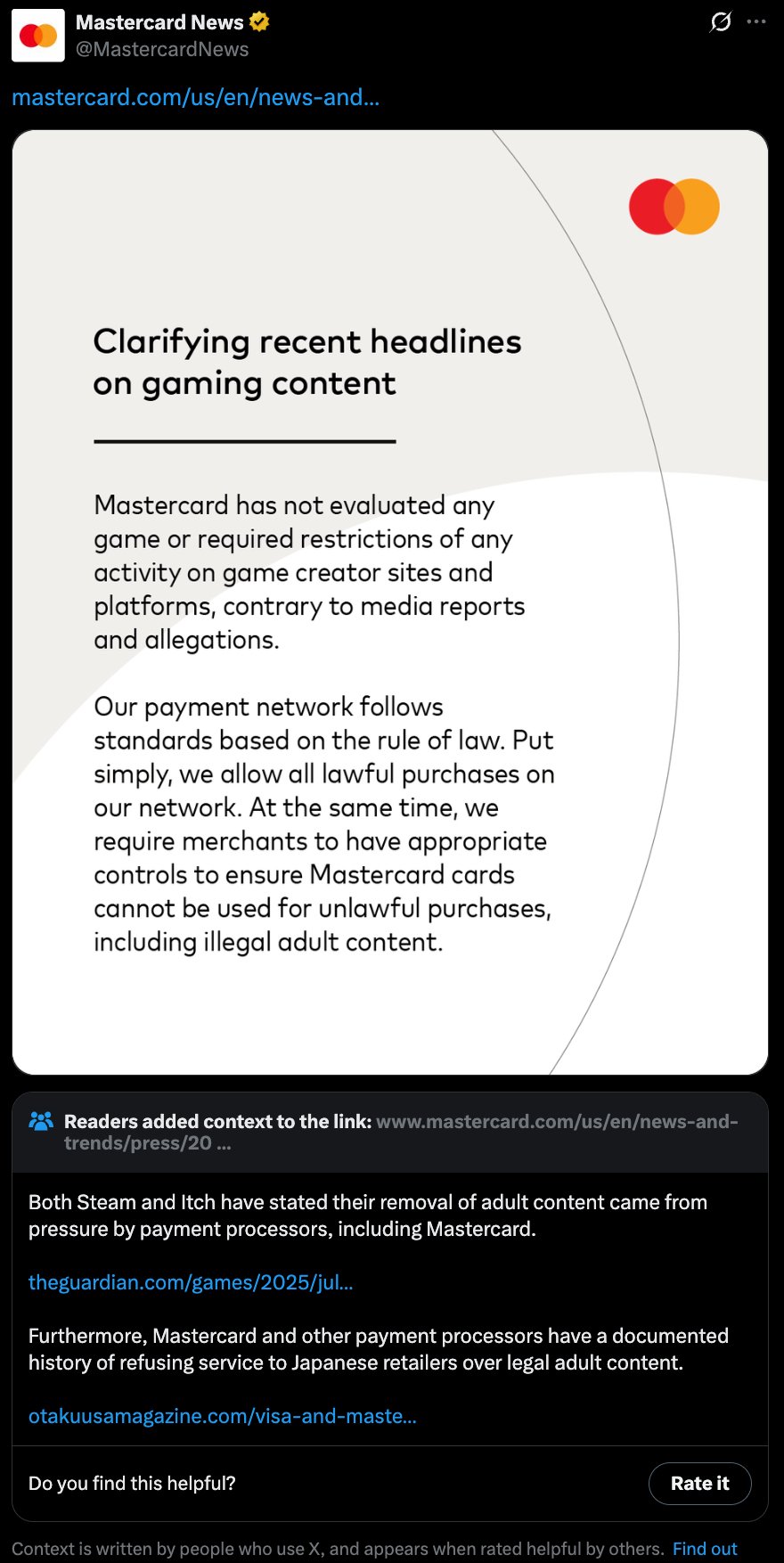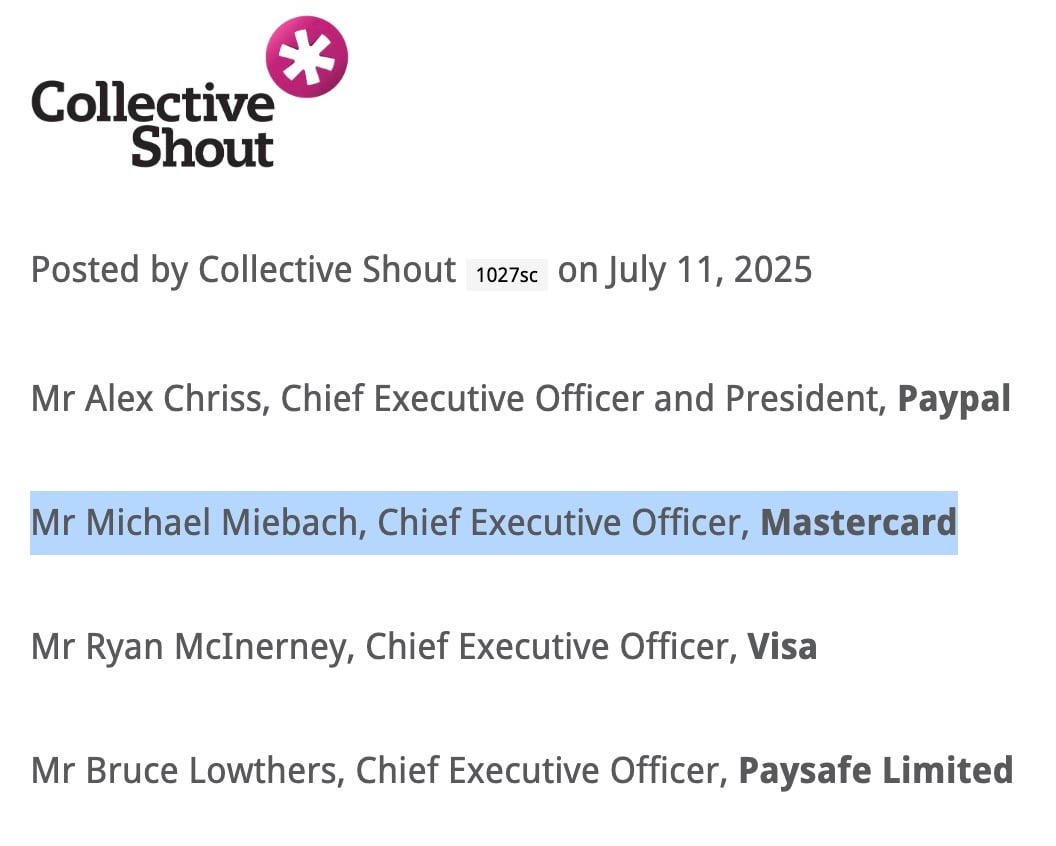If you’re tired of censorship and dystopian threats against civil liberties, subscribe to Reclaim The Net.
Steam has confirmed that the removal of adult-themed games from its platform was not a free decision, but the result of pressure from payment processors and banks after Mastercard flagged concerns through its Rule 5.12.7.
This disclosure comes after Mastercard publicly denied having “required restrictions of any activity on game creator sites and platforms” and asserted that it permits “all lawful purchases.”

But Mastercard has been accused of lying.
Valve, Steam’s parent company, says, yes, Mastercard never contacted it directly. Instead, the company’s banking and payment partners relayed the message that Steam’s existing policies for moderating illegal content were deemed insufficient.
“Mastercard did not communicate with Valve directly, despite our request to do so,” Valve’s statement sent over email to Kotaku reads. “Mastercard communicated with payment processors and their acquiring banks. Payment processors communicated this with Valve, and we replied by outlining Steam’s policy since 2018 of attempting to distribute games that are legal for distribution. Payment processors rejected this, and specifically cited Mastercard’s Rule 5.12.7 and risk to the Mastercard brand.”
Rule 5.12.7 forbids “the sale of a product or service, including an image, which is patently offensive and lacks serious artistic value,” even if such material is lawful. Violations can result in financial penalties or outright loss of payment processing services.
Mastercard’s denial of direct involvement is further complicated by the fact that its CEO, along with Visa’s CEO, signed an open letter from anti-porn group Collective Shout calling for payment companies to act against what the group described as “violent pornography” in games.

That letter preceded the sudden removal of many titles from both Steam and indie storefront itch.io, despite many of these games being totally legal.
While Mastercard insists it merely enforces its existing guidelines against “unlawful purchases, including illegal adult content,” those rules leave considerable room for subjective interpretation.
In practice, the threat of financial punishment has pushed platforms to purge vast amounts of lawful material rather than risk losing access to major payment networks.
The backlash has been significant. Gamers have flooded Mastercard and Visa with calls demanding an end to what they see as corporate overreach into lawful creative expression.
Itch.io has since restored some free NSFW titles, though it remains locked in negotiations over reinstating paid adult content. Steam’s policy, which, since 2018, has mostly allowed any game legal to be distributed, is now effectively undermined by Mastercard’s brand-control clauses.
The company may claim to “allow all lawful purchases,” but as long as vague brand-damage rules like 5.12.7 remain in effect, financial gatekeepers can quietly strong-arm platforms into erasing perfectly legal works from public access.
This is not simply a matter of “following the law,” it’s private financial networks deciding what creative expression survives.
If you’re tired of censorship and dystopian threats against civil liberties, subscribe to Reclaim The Net.
The post Steam Says Mastercard Pressure Drove Game Bans, Undermining “All Lawful Purchases” Claim appeared first on Reclaim The Net.
Click this link for the original source of this article.
Author: Cindy Harper
This content is courtesy of, and owned and copyrighted by, https://reclaimthenet.org and its author. This content is made available by use of the public RSS feed offered by the host site and is used for educational purposes only. If you are the author or represent the host site and would like this content removed now and in the future, please contact USSANews.com using the email address in the Contact page found in the website menu.





